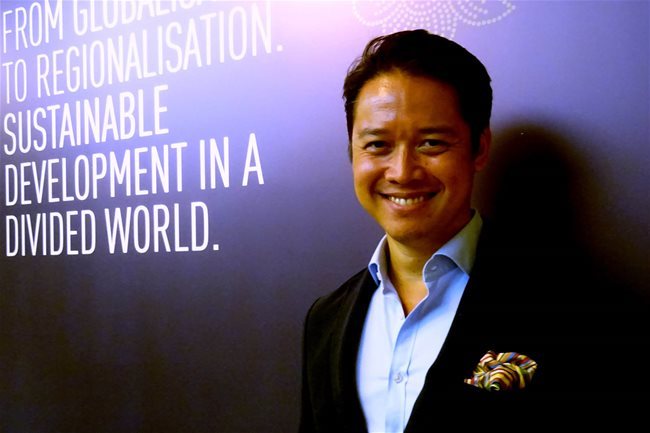 |
| Professor Jason Pomeroy |
During the Invest Asia 2019 conference organized in Singapore on May 9-10 by Maybank Kim Eng, The Saigon Times spoke with Professor Jason Pomeroy, an expert in Smart Cities and a keynote speaker at the conference, over the smart city matter.
What should a city be optimized for, for the people or for businesses?
Jason Pomeroy: It's a combination of both. Historically, cities were born out of trade and commerce often by riverfronts like here in Singapore. You wouldn't be able to do that without people: people's interactions, people's trading and conversing in order to create opportunities for businesses to grow. But, as we move from the Manufacturing Revolution and Industrial Revolution to the Technological Revolution and now the Digital Revolution, we see cities not necessarily be by the mouths of river: they can actually be anywhere.
Have you been to HCMC?
- Yes.
So how leaders of a city like HCMC can help residents be happy and reach their potential?
- It's very important for legislators, policymakers to be in tune with the people's needs. What will make them happier? What will actually make them productive? Bandung of Indonesia is an example. What we see there is a wonderful way that the government and in particular the former mayor Ridwan Kamil help make a good living for citizens. He reached out to his people, and said, tell me what will make you happy, what will actually make you more productive, what will give you a greater lifestyle. He asked them to share their experiences through social media like Twitter and Facebook.
And through the Digital Command Center that he created, he could sift through information to understand what the real critical issues were, for instance, street congestion, crime, pollution, ... Then he was able to respond to their immediate needs, and he was also able to apply Bandung City resources wisely.
So you need smartphones to spread your messages…
- It's important that people are able to communicate since we're living in a digital world. We need to bear in mind that the technology needs to be applicable from the child to the grown-up. I would like to come back to the idea of how to transform existing cities into smart cities. It's not just about the people, it's not just about the government but it's also about the private sector and academia willing to participate in creating better cities.
Academics can test new ideas relating to zero carbon development or the reduction of noise or pollution or flooding risk. And the private sector can contribute to testing some of these ideas. Once their concepts work, there can be immediate benefits for the people. And city’s leaders, then the government can ratify those ideas.
Great examples are Barcelona and Amsterdam.
I’d like to get back to HCMC’s problems. It’s now crowded, overheating and polluted. What need to be done to transform it into a smart city?
- I’ll answer your question by an example. It’s Barcelona, which is an old city. What we see in Barcelona is that it had the same problems that you just described. It was crowded and overheating. And it was one of the most polluted city environments for many years. I’ve read that the mayor of Barcelona thought why they we cannot take the cars off the streets, why they don't try and create superblocks where interior streets could be closed off to cars, thus making it possible for people to walk, cycle and create an opportunity for bars, restaurants and cafes to operate. So the Barcelona city’s government brought in urban greenery trees and pocket spaces which help reduce temperatures and flood risks because trees help absorb excess rainwater. I see no reason why HCMC can't borrow a few wonderful lessons from a UNESCO Heritage City like Barcelona (This city has seven UNESCO World Heritage sites).
HCMC also has some wonderful French neoclassical and colonial pieces. There are wonderful opportunities for the city to reinvigorate that Cafe Culture of the past, and because this culture can bring back greenery into the heart of HCMC. And it will also help reduce congestion, reduce overheating and absorb pollutants. And ultimately give people a place which they would love to live.
Can you help?
- Of course, I can. We're advising in Saudi Arabia. We're currently also doing a zero carbon project in Sweden. So our portfolio of green projects spread far and wide, not just in Asia. But you may know that projects are like tailoring. You just can't buy a suit and, expect it to fit everybody. What we have to do is look at the culture of the place, the climate of the place and technologies used at the place and tailor solutions that will respond to the smart and sustainable agenda of HCMC.
Ngoc Tran
SGT
 HCMC leaders are thinking of developing the city into a smart one.
HCMC leaders are thinking of developing the city into a smart one.